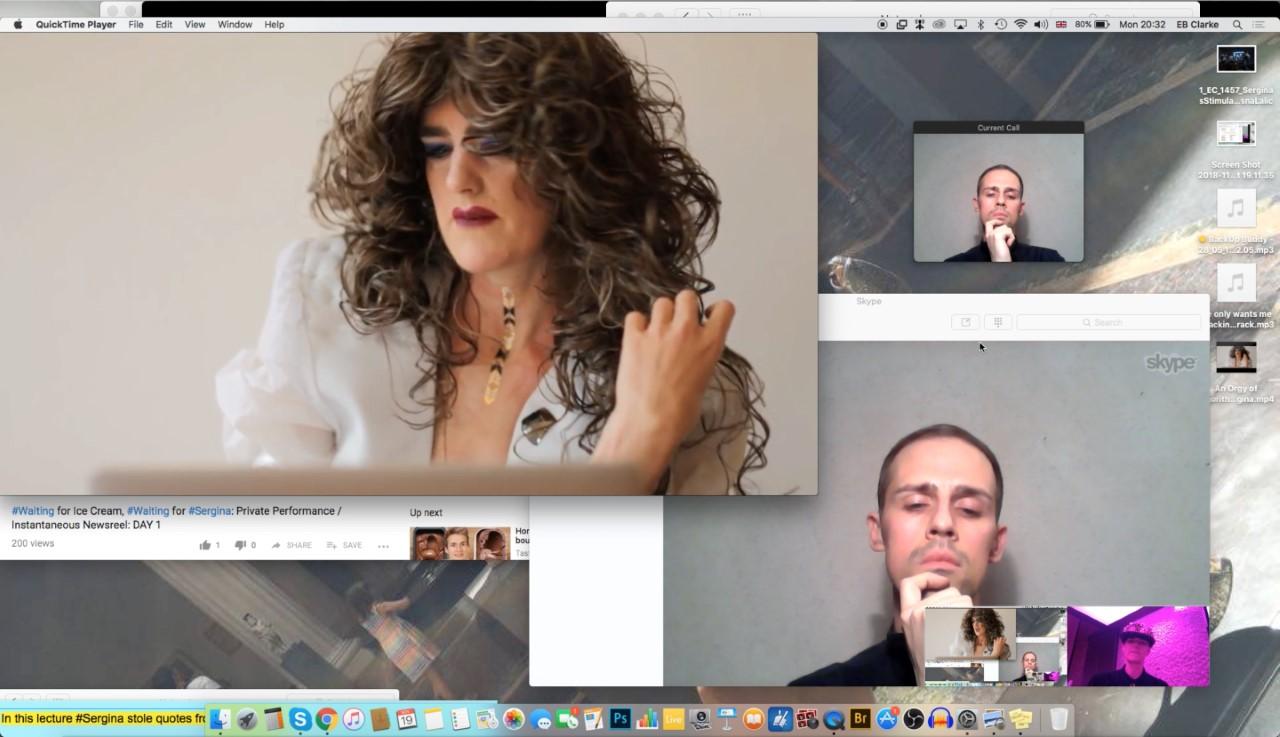Elly Clarke
Primary page content
Elly Clarke's MPhil/PhD Art research project
Is my Body Out of Date? The Drag of Physicality in the Digital Age
I want to know what you did last year,
I want to know how you wore your hair,
I want to know what you feel about current affairs.
Share it! Share it all with me.
Give it! Give it all to me.

Is my Body Out of Date? Episode 2, November 2018 - with Vladimir Bjeličić
Using drag as a queer and analytic tool, my practice-led research examines the performance – or drag - of being and having a human body in a digitally-mediated world. Defining the ‘physical body’ as the singular, flesh-and-blood body that we are (still) dependent on to exist, and the ‘digital body’ as the data that is ‘out there’ about us online, I am interested in the ways in which the digital and physical bodies clash, collaborate and collude in the shaping of identities, and where value is located. I apply the term ‘drag’ to ‘physicality’ to explore the potential of the physical body to feel at once like a performance (dragging up) and/or a burden (dragging down). I am also considering what it is to drag away and drag across. In a technological present of machine learning, artificial intelligence, tracking, and surveillance, I want to see how and where the physical body can still be a site and node of resistance and emancipation. I am examining this in three ways: through creative encounters with a few contemporary artists whose work resonates on this theme; through archive-based research on a decade of live ‘netcast’ performances produced via Franklin Furnace in New York 1998-2008, and my own digital/physical (drag) performance as #Sergina - a multi-bodied drag persona who, in one place or several at once, online and offline sings songs about love, lust and loneliness in the digital age.
Established in downtown New York in 1976 for live and ephemeral art before there was a term for it, Franklin Furnace was one of the very first organisations to offer up the Internet as a site and venue for live performance. In 1998 a new award called ‘The Future of the Present’ was launched to support performance work for online presentation. Over the next decade, more than seventy artists participated in this series. My focus is on how performance artists and their bodies and audiences responded to this new medium of live streaming and interactivity, during this key period in Internet history.
Supervisors
- Vikki Chalklin
- Sarah Kemberk